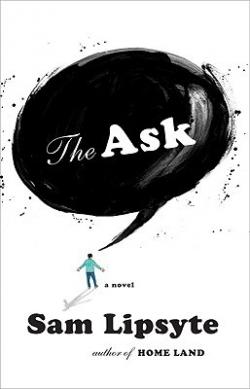 Unhappy, middle-aged painter Milo Burke is the protagonist of Sam Lipsyte’s book “The Ask,” described as an “unrelenting tour de force of black bile,” by the blog The Quarterly Conversation. Published by Farrar, Straus, and Giroux, “The Ask” refers to the occupation Milo holds in deference to his lack of success as an artist. Working for a low level New York university, he asks for funds to perpetuate another “generation of over-educated and underemployed drones,” as described by the Los Angeles Times. Milo’s life is charted in failures; to add insult to injury, he is failing at a mediocre level. When an old college buddy appears with a request and a wealth of cash, Milo is ready to do what he asks, spiraling further into disreputable depths. Lipsyte sculpts his characters with a bitter, satirical eye rarely found in current American literature and the result is exceptional, if bilious. “These are the kind of unlikable, lovable protagonists we miss; these are the self-loathing, mediocre secret geniuses who can set our people free,” concludes the New York Times.
Unhappy, middle-aged painter Milo Burke is the protagonist of Sam Lipsyte’s book “The Ask,” described as an “unrelenting tour de force of black bile,” by the blog The Quarterly Conversation. Published by Farrar, Straus, and Giroux, “The Ask” refers to the occupation Milo holds in deference to his lack of success as an artist. Working for a low level New York university, he asks for funds to perpetuate another “generation of over-educated and underemployed drones,” as described by the Los Angeles Times. Milo’s life is charted in failures; to add insult to injury, he is failing at a mediocre level. When an old college buddy appears with a request and a wealth of cash, Milo is ready to do what he asks, spiraling further into disreputable depths. Lipsyte sculpts his characters with a bitter, satirical eye rarely found in current American literature and the result is exceptional, if bilious. “These are the kind of unlikable, lovable protagonists we miss; these are the self-loathing, mediocre secret geniuses who can set our people free,” concludes the New York Times.
“The Ask”
View at Amazon: “The Ask: A Novel”.

Comments are closed.